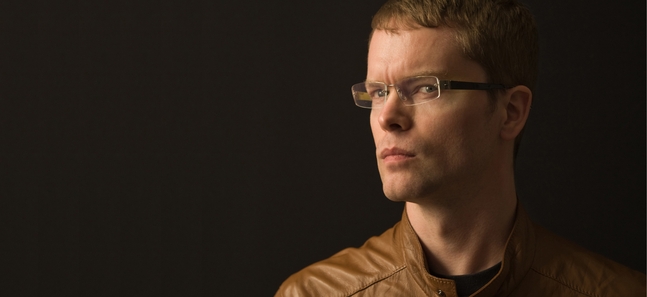
Photo by Krijn Van Noordwijk
Posted: Fri Apr 22 2011
His pummeling, industrial-strength techno sets are the stuff of legend, but even Surgeon isn't immune to a bit of Perfume. On his most recent trip to Tokyo, the English DJ and producer seized the chance to meet one of his musical heroes: producer Yasutaka Nakata, the pop savant behind Japan's premier electropop idol group.
Then again, Surgeon (born Anthony Child) has never been particularly catholic in his tastes. One of the great mavericks of UK dance culture, he started Birmingham's first techno club, House of God, with a group of friends in 1993, and gained notoriety for incorporating industrial, noise and happy hardcore into his sets. During the 2000s, he was an early adopter of the laptop approach to DJing, using Ableton Live and Final Scratch software to create dense, startlingly eclectic mixes like the 2007 Warp Records release This Is For Your Shits and last year's Fabric 53.
Japanese audiences got their first taste of Surgeon when Jeff Mills used two of his tracks in the classic Live from the Liquid Room mix in 1996, and he's been a regular visitor to these shores ever since. His latest tour comes as he's about to release a new album, Breaking the Frame, his first full-length record since 2000's Body Request. It's going to be a family affair: Child's wife, Doris Woo, will be taking care of the visuals, with support from Go Hiyama – presumably repaying the favour for Surgeon's remix of his track 'Geometrical'.
Glad to hear that you weren't among the ranks of DJs and musicians who are cancelling their tours of Japan at the moment. Did you have any second thoughts about coming?
Cancelling the tour was never an option from my side. I want to come and support my friends and the music scene in Japan.
As a regular visitor to Japan, what are the main changes you've seen since your first trip here?
The main changes have been my own perception and understanding of Japan and Japanese culture, language, etc. The techno scene has its cycles of ups and downs, but that's the same the world over.
We saw on your blog that you met Yasutaka Nakata during your last trip. Are you a fan?
Yes, that's my guilty secret. But not so secret after I posted the picture on my blog! I'm a fan of some of the groups he produces, so it was fun to meet him.
You also played at Dommune on your last couple of visits, right? How does that compare to a conventional club gig? Does the format have an impact on the kind of set you end up playing?
Dommune is great fun; I had no idea what to expect the first time I played there. Every time I perform anywhere, it's a unique environment and I always react to the place and people with the music and the way I play it. Yes, Dommune is a different format to a conventional club gig, but I really enjoy the challenge of playing in different situations.
You've thrown some pretty unexpected tracks into your sets over the years – is there a lot of advance planning involved there, or will you mix something in without knowing if it'll actually work?
It's a bit of both, really. I have unusual tracks that I really love and want to find a way of fitting into my set. It's because I really want to share that music with other people, my enthusiasm for it. When I do throw a curve ball into my set, I never really know if it's going to go down well. I think it's worth the risk and I feel I'm respecting the audience by not watering down what I do.
As an early adopter of Ableton, how does it feel to see so many DJs now toting laptops rather than record bags?
It's always up to each DJ what machines they choose to play their music with. Everyone should make their own personal choice. However, these are just tools for me, a means to an end. Often, too much emphasis is placed on the way the music is delivered, rather than the music itself. The music is always the most important thing.
Breaking the Frame is going to be your first full-length album in over a decade. Was there anything in particular that stopped you releasing your own music, and what made you get back into it again?
I didn't stop releasing music; I've released singles and done many remixes since the last album. For me, an album is a much more involved total concept, and these things don't work on a normal time frame. I don't work to release schedules, or other commercial concerns like that. I can't explain why it's been so long since the last album, but I don't like to force things like that. Just let them come naturally.
If someone was to sit down and listen to the album back to back with, say, Body Request, do you think there'd be any sense of continuity between the two?
I've not done that, but conceptually they are very, very different pieces of work. I guess aesthetic continuity could exist due to the fact that I produced both of them.
We'd expect someone who's devoted the past two decades of their life to dance culture to look a lot more haggard. What's your secret?
I'm a lot healthier now. I regularly practice yoga, don't drink alcohol or eat meat. That really helps me to cope with the punishing amount of travel I've done over the past 20 years. I turn 40 during the upcoming tour, and I still feel full of enthusiasm for so many kinds of music and the desire to share that music with people.
Surgeon plays at Unit on April 28, then heads to Osaka, Fukuoka, Hakodate and Nagoya. See www.dj-surgeon.com for details. Breaking the Frame is due out this summer
Tweets
- About Us |
- Work for Time Out |
- Send us info |
- Advertising |
- Mobile edition |
- Terms & Conditions |
- Privacy policy |
- Contact Us
Copyright © 2014 Time Out Tokyo










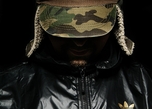
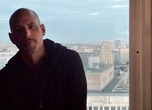
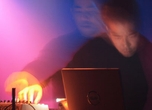
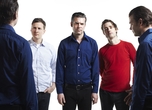
Add your comment